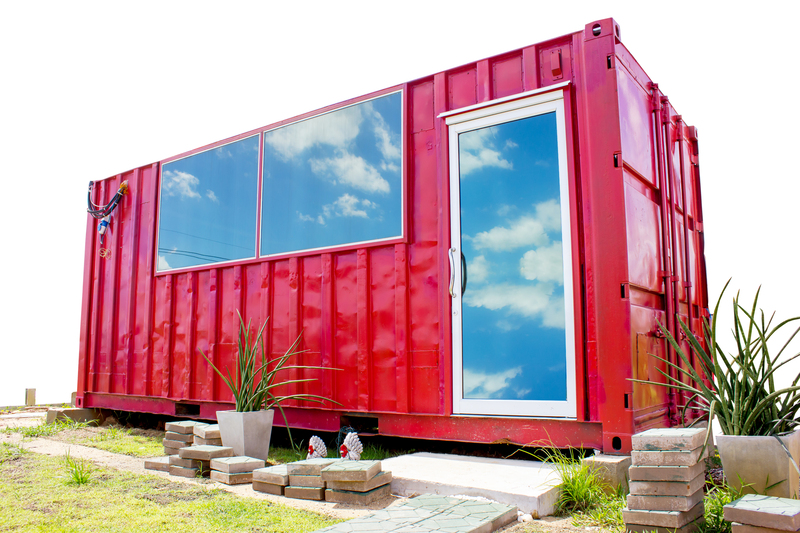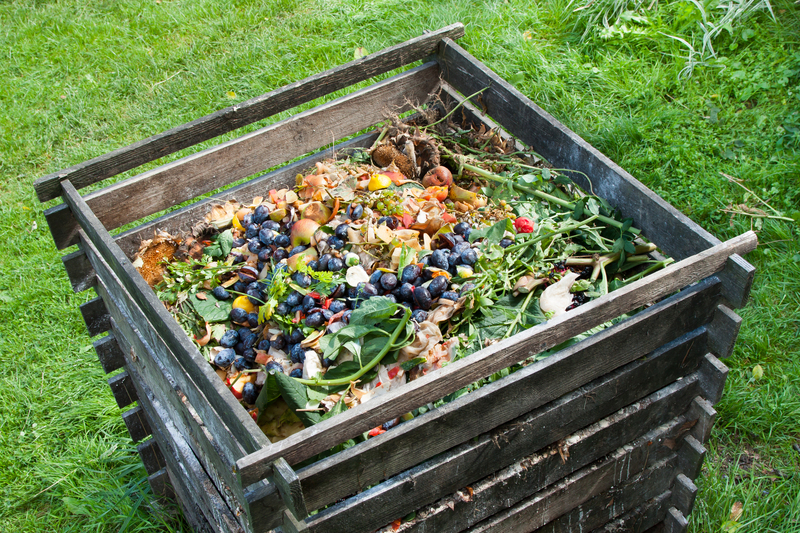De-clutter to De-stress: How Tidying Can Soothe the Soul
Posted on 10/09/2025
De-clutter to De-stress: How Tidying Can Soothe the Soul
Do you often feel overwhelmed by the clutter in your living spaces? Are you searching for a calm mind in a world full of chaos? Welcome to the transformative journey of de-cluttering and tidying up--a holistic approach that not only organizes your environment but also soothes the soul and brings peace to your mind.
Why Does Clutter Cause Stress?
Clutter is more than just a physical annoyance. In fact, it can be a major source of stress and anxiety for many people. Various studies have highlighted the *psychological effects of clutter*, linking messy environments to increased stress levels and lowered feelings of happiness. But what's the science behind this? Let's explore.
The Psychology of Clutter
- Overstimulation: When we're surrounded by too many objects, our brains receive more information than they can handle. This sensory overload can make it hard to focus and relax.
- Guilt and Shame: A cluttered space can lead to feelings of embarrassment, guilt, or even shame, especially if it represents unaccomplished tasks.
- Inhibited Productivity: Searching for lost items takes up valuable time and can lead to frustration, making you feel unproductive and disorganized.
- Impact on Relationships: Disorganized spaces can lead to conflicts with family members or roommates, increasing interpersonal stress.

The Connection Between Tidiness and Well-being
A growing body of research supports the idea that decluttering your environments can lead to reduced anxiety and improved emotional health. The act of organizing is, in itself, a form of self-care and mindfulness.
How Does Tidying Up Help?
- Boosts Mood and Motivation: An organized environment can trigger positive emotions, keep you motivated, and foster a sense of accomplishment.
- Encourages Mindfulness: The act of sorting and arranging objects forces you to be in the moment, making it a mindful activity.
- Improves Sleep: Clutter-free bedrooms are linked to better sleep quality and patterns.
With these benefits in mind, let's dive into practical strategies and the profound emotional rewards that come from embracing the de-clutter to de-stress lifestyle.
Practical Tips to Start Your Decluttering Journey
Set Realistic Goals
Decluttering can feel overwhelming if you try to tackle everything at once. Start with clear, manageable goals:
- Begin Small: Choose one room, or even just one drawer, to start.
- Time-bound Sessions: Set a timer for 15-30 minutes to avoid burnout.
- Daily Commitment: Consistency pays off--make it a daily ritual, even if it's just for a few minutes.
Sort, Donate, Discard
When embracing the de-clutter to de-stress philosophy, use these three simple categories for your items.
- Sort: Group items based on their function or location.
- Donate: Give away gently used items to those in need.
- Discard: Responsibly recycle or get rid of things that are broken, expired, or no longer serve a purpose.
Organize with Purpose
Once you've reduced your belongings, it's time to organize thoughtfully:
- Designated Spaces: Assign a home for every item to prevent future clutter.
- Labels and Bins: Use clear containers and concise labels for easy access and visual harmony.
- Vertical Storage: Make the most of your space by storing items vertically.
The Emotional and Spiritual Benefits of Decluttering
Decluttering is about much more than just clearing physical space. It's a powerful tool for self-discovery, healing, and emotional release. Consider these deeply satisfying payoffs:
Finding Clarity and Focus
- Mental Clarity: A tidy environment leads to a clearer mind, which can enhance decision-making and creative thinking.
- Reduced Anxiety: Fewer distractions allow you to focus on priorities and relax your mind.
Sense of Accomplishment and Control
- Empowerment: Taking control of your surroundings can boost confidence and autonomy.
- Self-discipline: Developing organizational habits fosters inner strength and discipline.
Letting Go of the Past
Objects often carry emotional attachments. Parting with items linked to negative memories or obsolete chapters can be truly liberating--freeing up space for *new experiences and positive energy*.
Decluttering Strategies: Popular Methods Explained
There are many decluttering techniques you can try, depending on your lifestyle and needs. Let's review a few popular methods:
The KonMari Method
Created by tidying expert Marie Kondo, the KonMari Method encourages you to keep only those items that spark joy. The process involves:
- Decluttering by category (e.g., clothing, books) rather than by room.
- Touching each item and asking yourself, "Does this bring me joy?"
- Thanking items before letting them go, acknowledging their role in your life.
The Four-Box Technique
This straightforward method involves labeling four boxes:
- Keep
- Donate
- Throw Away
- Relocate
Systematically move through your space, sorting each item into a box. This visual sorting process makes decisions easier and less overwhelming.
Minimalism Approach
Minimalism is about reducing possessions to the essentials, emphasizing quality over quantity. Practicing minimalism means evaluating what truly adds value to your life, rather than accumulating objects without purpose.
Making Decluttering a Lifestyle
Establish Daily Tidying Habits
- 10-Minute Reset: At the end of each day, spend 10 minutes tidying up common areas.
- Paper Management: File important papers and discard junk mail immediately.
- One In, One Out: For each new item brought home, let one old item go.
Organize Mindfully with Your Loved Ones
Decluttering can be a shared, meaningful family ritual. Involve children in decisions about their own belongings, and encourage everyone to take pride in tidy, shared spaces. This not only reduces household stress but also teaches lifelong organizational skills.
Decluttering Digital Spaces
In today's world, digital clutter--such as overflowing inboxes and disorganized digital files--can be as stressful as physical mess. Regularly empty your inbox, organize your files into folders, and delete unnecessary documents or apps to create virtual calm and boost productivity.
Overcoming Decluttering Challenges
Emotional Roadblocks
- Nostalgia Trap: It can be tough to discard items with memories. Ask yourself: "Is this object serving my present or just anchoring me to the past?"
- Fear of Shortage: The fear that you might "need it someday" can be paralyzing. Remind yourself that space and peace are more valuable.
Physical Barriers
- Limited Time: Break tasks into small, manageable steps. Use reminders and make it part of your weekly routine.
- Chronic Disorganization: Seek support if needed--professional organizers, helpful apps, or accountability partners can make a difference.
Decluttering for Self-Care and Mental Wellness
Decluttering is a self-love practice. Just like meditation, yoga, or journaling, tidying up can become a cornerstone of your well-being routine. By creating a serene environment, you nurture not only physical space but also invite internal harmony and inner peace.
Mindful Decluttering Rituals
- Set an Intention: Before you begin, take a few moments to reflect on your goals for the space.
- Breathe and Focus: Throughout the process, stay present and acknowledge emotions as they arise.
- Celebrate Progress: Reward yourself for milestones--enjoy your decluttered space, light a candle, or take a quiet moment to relax.
How Decluttering Supports Sustainability
Being mindful about what we keep and let go isn't just good for us--it's good for the planet, too. Donating, recycling, and repurposing items helps reduce waste and encourages a more sustainable, eco-friendly lifestyle.
- Donation Reduces Waste: Passing on useful items supports circular economies and helps those in need.
- Mindful Consumption: The less we accumulate, the less strain we place on the environment.
- Repurposing Materials: Creative upcycling can turn would-be clutter into useful or beautiful new objects.

More Than Clean Spaces: Decluttering for the Soul
At its heart, the de-clutter to de-stress journey is about so much more than tidying drawers or cleaning shelves. It's a conscious decision to let go of what no longer serves us--making room for growth, creativity, relaxation, and emotional healing.
Over time, you'll notice subtle but powerful shifts:
- Greater mental clarity and focus
- Heightened creativity and inspiration
- Deeper calmness and reduced anxiety
- Increased productivity and motivation
Start Your Decluttering Journey Today
De-cluttering your space is a gift you give yourself. From first steps to daily habits, each action brings you closer to tranquility, energy, and fulfillment. Let your surroundings nurture your soul, and watch as your well-being blossoms.
Final Thoughts: De-clutter to De-stress, Reclaim Your Inner Peace
- Take the process step by step--progress, not perfection, is the goal.
- Embrace the emotional releases that come with letting go.
- Celebrate calm and clarity in every corner of your life and mind.
Begin your personal journey to serenity. De-clutter to de-stress, and discover how tidying can truly soothe the soul.
Latest Posts
The Different Faces of Hazardous Waste Explained
Master the Art of Hosting with Our Pre-party Cleaning Tips
Working Green: Practical Tips for Reducing Office Waste





